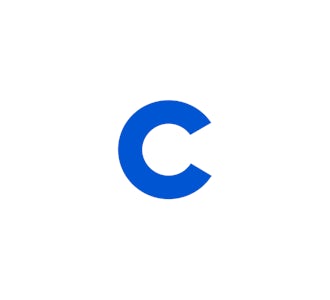![[Video thumbnail] How to Pivot Industries as a UX Designer](https://images.ctfassets.net/wp1lcwdav1p1/HSdzfdZEBUUhkSMCIv19y/5025aa665ef959e43bc9cad8f93280a4/maxresdefault__14_.jpg?w=330&h=216&q=60&fit=fill&f=faces&fm=jpg&fl=progressive)
How to Switch Industries as a UX Designer (VIDEO)
Love UX Design but craving a change of scenery? Switching industries within UX is a fantastic way to challenge yourself, discover new passions, and unlock exciting career opportunities.
March 12, 2025
Article

![[Featured image] A UX project manager stands in front of a whiteboard and gives a presentation to their team.](https://images.ctfassets.net/wp1lcwdav1p1/jSd6NPPNiEjwPCKbgem8u/59c8c0d95457848d8dc10fd7c84a3b13/GettyImages-1437209178.jpg?w=330&h=216&q=60&fit=fill&f=faces&fm=jpg&fl=progressive)
![[Featured Image] A team leader points at their computer and talks with their coworkers about using artificial intelligence in UX design.](https://images.ctfassets.net/wp1lcwdav1p1/5TsiNaxki1KoKE2SjwxRXB/964e065b1f60a294b50e901eeb6aacd6/GettyImages-1339030364.jpeg?w=330&h=216&q=60&fit=fill&f=faces&fm=jpg&fl=progressive)
![[Featured Image] A pair of UX designers looks at a computer while working on their design sprint.](https://images.ctfassets.net/wp1lcwdav1p1/xlrA3hvawmSxPQvG660cQ/cf00fe142809aa90eb8f23da4fa1a340/GettyImages-1158816111.jpeg?w=330&h=216&q=60&fit=fill&f=faces&fm=jpg&fl=progressive)
![[Featured image] A UX designer is working from home holding a baby as they type on their laptop.](https://images.ctfassets.net/wp1lcwdav1p1/58bpNYzagq5zMIrNIGOT2o/4687e0a3a8cae1f615a4ee44326f5058/GettyImages-571492555.jpg?w=330&h=216&q=60&fit=fill&f=faces&fm=jpg&fl=progressive)
![[Featured Image] Two designers are discussing their UX strategy while sitting at a workplace table and looking at designs on paper, a laptop, and a tablet.](https://images.ctfassets.net/wp1lcwdav1p1/1BJe6RJofBzBLn9wd8uVwN/b1e51d931d906d56e26dedd59baf31db/GettyImages-2169040279.jpg?w=330&h=216&q=60&fit=fill&f=faces&fm=jpg&fl=progressive)



![[Featured image] A professional following a UX designer career path works at a laptop computer.](https://images.ctfassets.net/wp1lcwdav1p1/6fwcf9G0Hc3c2t9pnKWdwd/b59cdfb4e355c50786a458bef9e30d35/GettyImages-1092232950.jpg?w=330&h=216&q=60&fit=fill&f=faces&fm=jpg&fl=progressive)
![[Featured Image] Small group of people using both a computer and a smartphone app to complete their work.](https://images.ctfassets.net/wp1lcwdav1p1/6AdMky3yL9NXQcNocknhLV/c3da96aee75a06f74e359fc80de1b98c/GettyImages-2067743058.jpg?w=330&h=216&q=60&fit=fill&f=faces&fm=jpg&fl=progressive)
![[Featured image] A product designer wears a floral blouse and stands in an open office holding a tablet.](https://images.ctfassets.net/wp1lcwdav1p1/32tDttnPQMUyzzMj93Nups/8d744f5f78e90400ed044d880405827c/iStock-852930228.jpg?w=330&h=216&q=60&fit=fill&f=faces&fm=jpg&fl=progressive)
![[Featured image] A UX designer sketches on a tablet while drinking a cup of coffee.](https://images.ctfassets.net/wp1lcwdav1p1/28aCYqu85OABIk0jxLCCrM/7ad66191f944ddfa66f2d1b8382cac63/UX_Designer_salary.png?w=330&h=216&q=60&fit=fill&f=faces&fm=jpg&fl=progressive)
![[Featured Image] A smiling worker with short hair and earrings sits at a table answering UX designer interview questions.](https://images.ctfassets.net/wp1lcwdav1p1/6VyaXnvFr68wTykHw8bSHb/eae30caef4af0c5f1b253fcd19e3007c/UX_design_interview.png?w=330&h=216&q=60&fit=fill&f=faces&fm=jpg&fl=progressive)
![[Featured image] A smiling person in a black shirt and necklace sits at their laptop and works on their UX portfolio in a brightly lit office.](https://images.ctfassets.net/wp1lcwdav1p1/1vchrSQ853YbMXncBSBwkr/48c1aa08827e27f61792e4bfa6077bca/UX_design_portfolio.png?w=330&h=216&q=60&fit=fill&f=faces&fm=jpg&fl=progressive)
![[Featured Image] A person wearing red headphones sits on a leather bench listening to a podcast on their phone.](https://images.ctfassets.net/wp1lcwdav1p1/6F4Gev9hUWVbLNTeCy1i47/948f6e5354d1bdc4a9a473d014f77c59/UX_books_blogs_podcasts.png?w=330&h=216&q=60&fit=fill&f=faces&fm=jpg&fl=progressive)
![[Featured image] A smiling UX designer works on his phone and laptop in a brightly lit startup office](https://images.ctfassets.net/wp1lcwdav1p1/1nNRSeqkpDoWxTIw6dizv0/63ec7bb6ab6f65be435abece506dd18c/UX_design_skills.png?w=330&h=216&q=60&fit=fill&f=faces&fm=jpg&fl=progressive)
![[Featured image] A graphic designer sits at a table with their pink laptop in a brightly lit room](https://images.ctfassets.net/wp1lcwdav1p1/421Tx5urMn9TJYCXTK9EGI/b150030ace96dda7fa49804c437bb28a/Graphic_designer_vs_ux_designer.png?w=330&h=216&q=60&fit=fill&f=faces&fm=jpg&fl=progressive)



